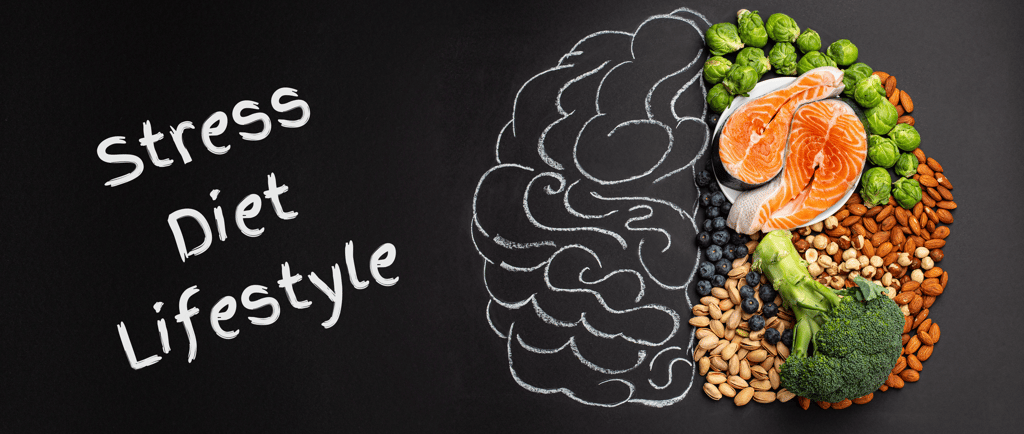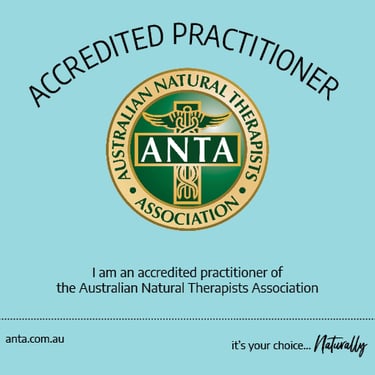What is stress?
"I've been so stressed!" has become a common answer to the question "How are you?" in our modern day, but have you ever stopped to consider what this really means in terms of our holistic health? Stress is not a tenant that sets up house within our brain and keeps to itself - it likes to spread its message far and wide throughout the body.
So what is stress? Stress is our compensatory biological response to internal or external stimuli that we interpret as a threat. When a threat is acute and genuinely dangerous to our survival (e.g. a wild animal chasing us), our stress response activates the biological processes necessary for us to protect our life (e.g. run as fast as possible!)
In short-lived, limited bouts, stress is a normal and useful biological response. In fact, it was a very appropriate reaction back in the day when our lives consisted of genuine daily threats to our survival. Nowadays, the pace and demands of our modern lives, combined with the brain’s generally unsophisticated mechanisms for categorising dangers, contribute to the susceptibility of our bodies to inappropriately interpret non-life threatening triggers as legitimate reasons to enact a stress response. This can result in the chronic, sustained stress that many people experience today - the "I've been so stressed" lifestyle.
Potential health impacts of stress
When stress becomes prolonged or frequently recurrent it can contribute to significant health issues. Internally, it can enhance increased systemic inflammation and oxidative stress (common physiological foundations of many chronic illnesses), broadly alter hormonal activity and impair our immune system. It can also affect cognitive functions such as learning and memory, and elevate the risk of experiencing longer-term changes to our nervous system and developing clinical psychological conditions (e.g. depression).
By adopting a holistic approach, you can support your body to cope with the physiological effects of stress and limit its impact on your health.
Holistic strategies to manage the effects of stress
Holistic nutrition approaches to stress centre upon supporting the nervous system to better deal with stress whilst other interventions are adopted to support the person to alleviate the sources of stress - e.g. with a mental health practitioner.
We do not live in a bubble, and so the way that we interact with our life environments can dramatically impact our daily stress levels and the extent to which they may become a broader health issue. Lifestyle habits can either help or hinder our goals to manage healthy amounts of stress. Further, as evidenced by the increasing focus on the 'food and mood' paradigm and evidence supporting the gut-brain axis, it is very clear that what we eat can have a significant impact on the structure and function of our nervous system.
Managing stress through lifestyle practices
Depending on your needs, we may focus on the following factors:
Addressing your sleep practices to ensure you are getting adequate and good quality rest and sleep time.
Discussing how you might develop new habits to limit your screen time and exposure to negative media.
Identifying how the quality of your social relationships may be impacting your stress levels.
Supporting you to meet any goals you may have to limit your intake of substances such as caffeine and alcohol.
Referring you to a mental health professional for specialised support where your needs exceed our scope of practice.
Key nutrients for addressing stress
Depending on how your body's stress-related activities may be interacting with your particular nutritional profile and overall health, the below nutrients may be useful.
B group vitamins
As a collective group of micronutrients, B vitamins support the healthy function of our adrenal glands which are responsible for the release of stress hormones, as well as playing a role in modulating levels of other chemicals within our bodies that help to regulate our mood and psychological outcomes. A range of foods such as chicken, mushrooms, organ meats, avocados, red meat, salmon, tuna and raw rice bran can collectively maximise the synergistic health benefits associated with the range of B vitamins.
Magnesium
Magnesium is a key neuromuscular relaxant that affects a number of neurotransmitter systems. It helps to inhibit the release, and block the actions, of several chemicals in the body that excite our nervous system. Achieving adequate dietary levels of magnesium through foods such as green leafy vegetables (e.g. spinach, kale and turnip greens), beans (including black, butter, kidney, pinto and soy), pumpkin seeds, seafood and wholegrains may be useful for relaxation of the nervous system.
Vitamin C
During our physiological stress reactions, our adrenal glands rapidly burn through a lot of vitamin C, so we may need to ensure adequate replacement during periods of significant stress. Dietary and nutritional assessment can assist in identifying any need for this, and recommendations may involve including key vitamin C food sources in your diet such as broccoli, citrus fruits, capsicum, tomatoes, kiwifruit, rockmelon, strawberries, papaya and guava.
Vitamin D
Did you know that vitamin D is something of a vitamin imposter? That's right - it is actually a hormone masquerading as a vitamin! Putting aside this fun fact, in the brain, vitamin D helps to modulate our mood and messaging between nerve cells by regulating calcium activity and levels of 'feel-good' neurotransmitters (e.g. dopamine and serotonin). Natural sunlight prompts our bodies to produce vitamin D. We can also source it through our diet by including fatty fish (e.g. trout, salmon, sardines, and mackerel) and fish liver oils, and more minimally from some animal-based foods including beef liver and egg yolk.
Omega-3 fatty acids
These 'healthy fats', found in good amounts in foods such as fatty fish, chia seeds, flaxseeds and walnuts, support our bodies against the effects of stress through mechanisms including balancing our gut bacteria and neurochemistry and decreasing inflammation. Their anti-inflammatory actions counter the systemic inflammatory effects of stress, and they are also vital for the structural formation of nerve cells and, in turn, healthy nerve impulse transmission. Many people in the western world have a poorly balanced dietary fat profile that does not support these types of biological processes.A trained Nutritionist can assist you in addressing this in a way that supports a healthy nervous system.
Sources
https://ods.od.nih.gov/factsheets/Magnesium-HealthProfessional/
https://ods.od.nih.gov/factsheets/VitaminC-HealthProfessional/
https://www.frontiersin.org/articles/10.3389/fpsyt.2021.598119/full
https://www.betterhealth.vic.gov.au/health/healthyliving/vitamin-d
https://www.frontiersin.org/articles/10.3389/fpsyt.2021.598119/full
© Sharon Jenner 2023
DISCLAIMER
Some of the information we provide on our website may be information related to health but it's not meant to be health "advice". We provide this information for your general use only. While we try to provide accurate information, it may be historical, incomplete information or based on opinions that aren't widely held. Your personal situation has not been considered when providing the information, so any reliance on this information is at your sole risk. We recommend seeking independent professional advice before relying on the information we provide.



